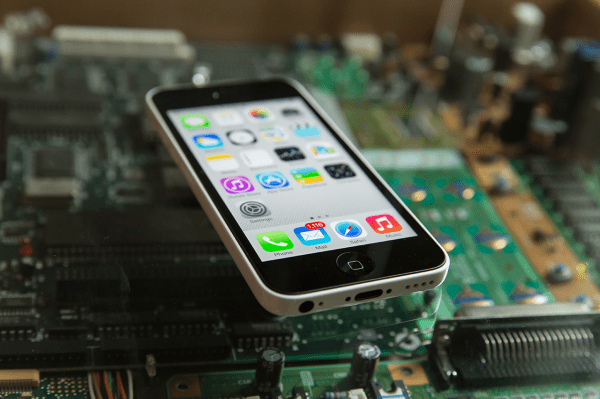And we’re back with another episode of our favorite privacy saga between Apple and the FBI. This time, the Department of Justice gets involved. The department has filed a motion asking Apple to comply with the FBI order.
The FBI originally ordered Apple to create a special version of iOS to access a work iPhone 5c from one of the terrorists involved in the San Bernardino shooting, allowing passcode submissions via Bluetooth, Wi-Fi or the USB cable among other things. Apple then refused to comply with the order citing privacy and security concerns.
Today’s filing shouldn’t come as a surprise as the White House already said that it was supporting the FBI. “The president certainly believes that is an important national priority,” White House spokesman Josh Earnest said during a media briefing.
But that was just a media briefing. Now it’s official, the Department of Justice itself is getting involved, and it doesn’t look good for Apple. Josh Gerstein from Politico shared the filing on Twitter.
“Apple left the government with no option other than to apply to this Court for the Order issued on February 16, 2016. The Order requires Apple to assist the FBI with respect to this single iPhone used by Farook by providing the FBI with the opportunity to determine the passcode. The Order does not, as Apple’s public statement alleges, require Apple to create or provide a ‘back door’ to every iPhone; it does not provide ‘hackers and criminals’ access to iPhones; it does not require Apple to ‘hack [its] own users’ or to ‘decrypt’ its own phones; it does not give the government ‘the power to reach into anyone’s device’ without a warrant or court authorization; and it does not compromise the security of personal information.”
So the Department of Justice denies most of Apple’s arguments. It also says that Apple’s defense is a “marketing strategy.” But it’s hard to believe that given the mixed public reaction.
“Once created, the technique could be used over and over again, on any number of devices. In the physical world, it would be the equivalent of a master key, capable of opening hundreds of millions of locks,” Tim Cook wrote in his original letter.
And it’s hard to trust the Department of Justice and the FBI on this issue. If Apple supervises this process, the FBI could reverse-engineer the firmware. If Apple makes sure the FBI doesn’t see this firmware, it creates a precedent. Nothing would stop the FBI from asking for other backdoors for just one phone, again and again. Nothing would stop secret services in Germany or China from doing the same.
Later, the Department of Justice is also referring to other iPhones. Apple complied with previous All Writs Act orders for iOS 7 devices. But the filing doesn’t say that these devices didn’t require a backdoor.
This filing also tells us a bit more about what the FBI is looking for. Apple already gave the FBI an iCloud backup of the iPhone 5c in question. But the last backup was on October 19, 2015. There were some text messages or iMessage conversations with victims of the San Bernadino shootings on this device — most likely because they were coworkers. The FBI wants to see the most recent conversations.
But again, the FBI is also leveraging this opportunity to ask for special treatment. It’s unclear why texts with coworkers would help when it comes to investigating a terrorist attack.
Apple now has until February 26th to comply with the order. At this point, it’s hard to say what Apple will do next. But it’s clear that this issue has opened an overarching debate on privacy and security.

